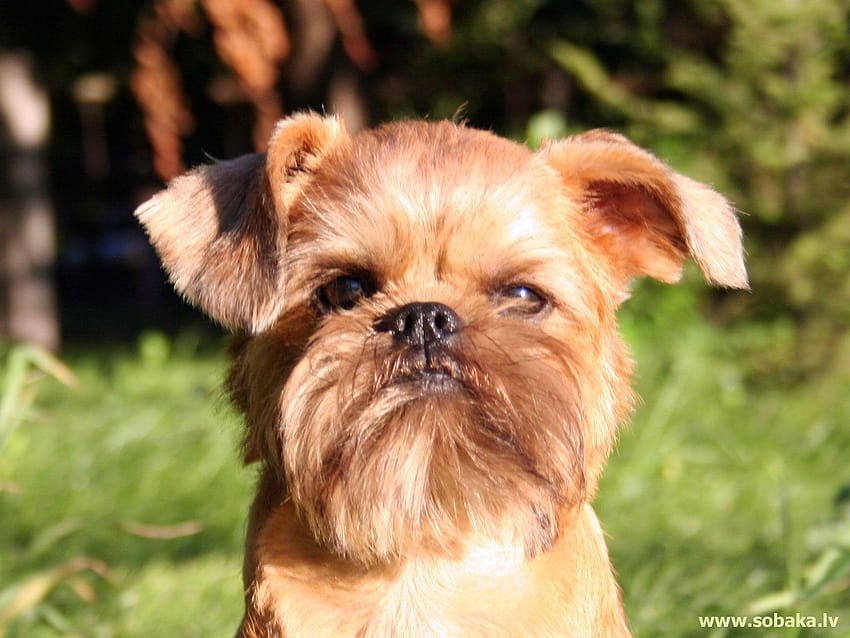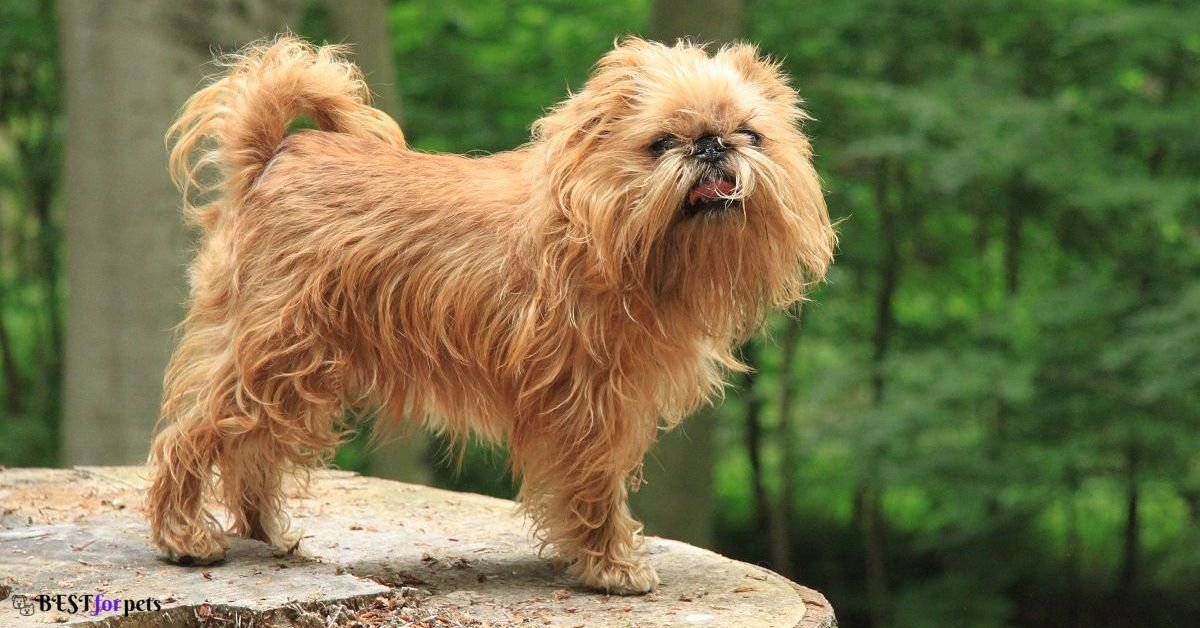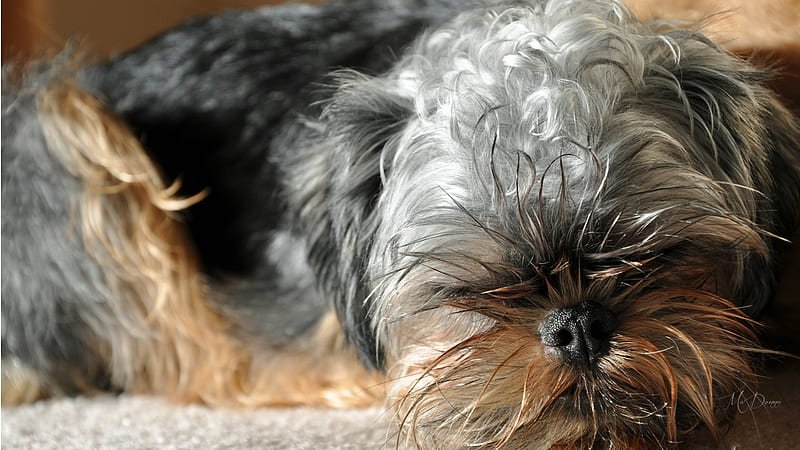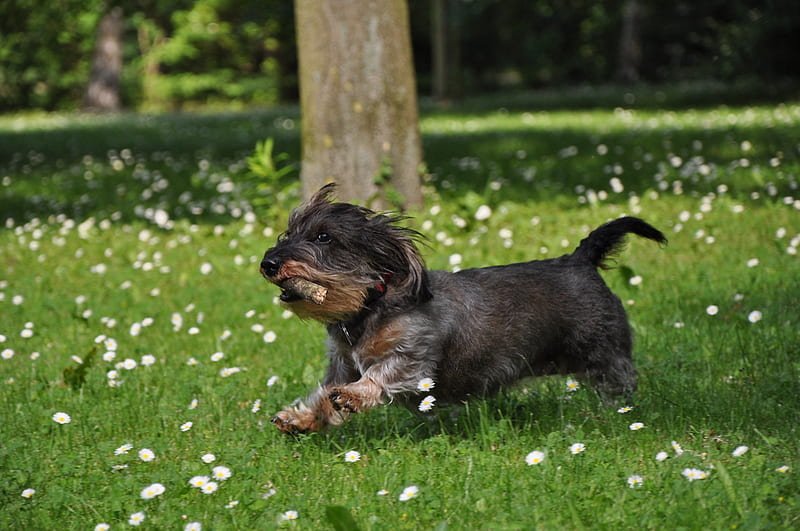//Prices//
Brussels Griffon Price In India
The price of a Brussels Griffon in India can vary depending on several factors, including the breeder’s reputation, the puppy’s lineage and pedigree, the location of the breeder, and the demand for the breed in that particular area. On average, the Brussels Griffon Price in India can range from Rs 35,000 to Rs 100,000.

Various Factors That Affects The Price Of Brussels Griffon
Breeder Reputation:
Reputable and responsible breeders who follow ethical breeding practices and prioritize the health and well-being of their dogs may charge higher prices for their Brussels Griffon puppies.
Pedigree and Lineage:
Brussels Griffon puppies with champion bloodlines and a well-documented pedigree may have a higher price tag due to their desirable genetic traits.
Health and Vaccination Status:
Puppies that have received appropriate vaccinations, deworming, and health checks by a veterinarian may be priced higher than those without proper medical care.
Coat Type and Color:
Brussels Griffons come in both smooth and rough coat varieties, and certain coat colors or patterns may be more sought after, influencing the price.
Demand and Availability:
If Brussels Griffons are rare or in high demand in a specific region, the price may be higher compared to areas where they are more readily available.
Geographical Location:
Prices can vary based on the breeder’s location and the cost of living in that area.
Breeding Expenses:
Responsible breeding includes various expenses, such as health testing, proper care for the parent dogs, and puppy care. These costs can also impact the price of the puppies.
An Introduction To Brussels Griffon
History of Brussels Griffon
The Brussels Griffon, also known as Griffon Bruxellois, has a fascinating history dating back to 19th-century Brussels, Belgium. The breed was developed through crossing several small dog breeds, including the Affenpinscher, Pug, and English Toy Spaniel. Originally, the Griffon Bruxellois served as a rat catcher in the stables of Brussels, where their small size and fearless nature made them excellent at controlling vermin. Over time, they caught the attention of Belgian nobility and became popular as charming companions.
The breed’s popularity grew further when Queen Marie Henriette of Belgium fell in love with Brussels Griffons and began breeding them in her royal kennels. The breed’s unique appearance and endearing personality contributed to their success in the show ring, where they became a favorite among dog enthusiasts. Today, Brussels Griffons are cherished pets and continue to win the hearts of dog lovers worldwide.
Appearance of Brussels Griffon
The Brussels Griffon is a small and captivating breed with a distinctive appearance that sets them apart from other dogs. They have a compact, square-shaped body and stand about 7 to 8 inches tall at the shoulder. Their round skull, large, dark eyes, and short, pushed-in nose give them a human-like expression that exudes charm and character.
Brussels Griffons come in two coat varieties: smooth and rough. The smooth-coated Griffon has a short, glossy coat that lies close to the body, while the rough-coated variety boasts a dense, wiry coat with a bushy beard and eyebrows. The coat colors can vary and include red, black, black and tan, or a combination of these colors.
Despite their small size, Brussels Griffons have a robust and sturdy build, reflecting their history as working dogs. Their unique appearance, along with their affectionate and lively personality, makes them an adorable and endearing breed cherished by their owners.

Brussels Griffon Temperament and Activities
Brussels Griffons are known for their lively and affectionate temperament. They are loyal and loving companions that form strong bonds with their human families. While they may initially be reserved around strangers, they are generally friendly and sociable once they feel comfortable.
These little dogs have a confident and spirited demeanor, often displaying a comical and mischievous side that brings joy to their owners. Despite their boldness, they can also be sensitive, so positive reinforcement and gentle training methods work best for them.
Brussels Griffons thrive on attention and love being part of family activities. They are adaptable and can adjust well to apartment living, but they still need daily exercise and mental stimulation to prevent boredom. Short walks, play sessions, and interactive toys can keep them physically and mentally engaged.

Brussels Griffon Health Issues
Respiratory Problems:
Due to their short noses and flat faces, Brussels Griffons are prone to respiratory issues, such as brachycephalic airway syndrome. They can experience difficulty breathing, especially in hot or humid weather.
Luxating Patella:
This is a common orthopedic issue in small breeds, including Brussels Griffons. Luxating patella occurs when the kneecap slips out of its normal position, causing discomfort and lameness.
Eye Conditions:
The breed is susceptible to various eye problems, including cataracts, corneal ulcers, and progressive retinal atrophy (PRA). Regular eye check-ups by a veterinarian are essential to detect and manage these conditions.
Dental Problems:
Dental hygiene is crucial for Brussels Griffons, as they are prone to dental issues like periodontal disease. Regular brushing and dental check-ups can help maintain their oral health.
Allergies:
Some Brussels Griffons may develop skin allergies, which can cause itching, redness, and skin infections. Identifying and avoiding allergens, along with appropriate treatment, can help manage allergies.
Patent Ductus Arteriosus (PDA):
This is a congenital heart defect that can affect Brussels Griffons. Early detection and treatment are necessary for a better prognosis.
Brussels Griffon Care Tips
Regular Veterinary Check-ups:
Schedule regular check-ups with a veterinarian to monitor your Brussels Griffon’s health, address any concerns, and keep up with vaccinations and preventive care.
Grooming:
Brush the coat regularly, especially for rough-coated Griffons, to prevent matting and keep the coat clean. Trim nails regularly, clean ears, and maintain good dental hygiene.
Nutrition:
Provide a balanced and high-quality diet suitable for your Brussels Griffon’s age, size, and activity level. Avoid overfeeding to prevent obesity, which can exacerbate health issues.
Exercise and Mental Stimulation:
Engage your Griffon in daily walks and playtime to keep them physically and mentally active. Interactive toys and puzzle feeders can provide mental enrichment.
Temperature Control:
Due to their brachycephalic nature, Brussels Griffons are sensitive to extreme temperatures. Keep them indoors in hot or cold weather, and provide a comfortable environment with adequate ventilation.
Socialization and Training:
Early socialization is essential to help your Griffon become well-adjusted and confident around other pets and people. Positive reinforcement training will ensure a well-behaved and obedient companion.

Avoid Stressful Situations:
Brussels Griffons can be sensitive to stress, so provide a calm and stable environment. Avoid exposure to loud noises and unfamiliar situations that may cause anxiety.
Hydration:
Ensure your Griffon has access to fresh water at all times, especially during hot weather or after exercise.

Brussels Griffon Lifespan
The average lifespan of a Brussels Griffon is around 12 to 15 years. With proper care, a healthy diet, regular exercise, and regular veterinary check-ups, some Griffons have been known to live even longer. Like all breeds, individual longevity can vary based on genetics, lifestyle, and overall health.
Brussels Griffon Maintenance Cost
Food Expenses:
The monthly food expenses for a Brussels Griffon can vary based on the quality of food and your dog’s size, but it typically ranges from ₹1,500 to ₹3,000 ($20 to $40).
Grooming:
Grooming costs may include regular brushing, nail trimming, and occasional professional grooming. On average, grooming expenses can be around ₹1,500 to ₹2,500 ($20 to $35) per month.
Medical Care:
Regular veterinary check-ups, vaccinations, and preventive medications can cost around ₹1,000 to ₹2,000 ($15 to $30) per month.
Toys and Accessories:
Providing toys, beds, collars, and other accessories can add an extra ₹500 to ₹1,000 ($7 to $15) per month.
Diet and Nutrition for Brussels Griffon
Brussels Griffons require a well-balanced and nutritious diet to support their overall health and well-being. Here are some essential guidelines for feeding your Griffon:
High-Quality Dog Food:
Choose a premium, commercially prepared dog food that is specifically formulated for small breeds. Look for options with real meat as the primary ingredient and without artificial additives.
Portion Control:
Brussels Griffons are small dogs prone to weight gain. Measure their food portions carefully to avoid overfeeding and obesity.
Frequency of Feeding:
Divide their daily food intake into two or three meals to prevent bloating and aid digestion.
Avoid Table Scraps:
Resist the temptation to share human food with your Griffon, as some human foods can be harmful to dogs.
Hydration:
Ensure your Griffon has access to fresh water at all times, especially after exercise and during hot weather.
Treats in Moderation:
Use treats as rewards during training, but be mindful of the calorie content and avoid excessive treat-giving.
Consider Special Dietary Needs:
If your Brussels Griffon has specific health concerns or allergies, consult with a veterinarian to determine the best dietary plan.
Facts about Brussels Griffon
1. Brussels Griffons are often referred to as “Velcro dogs” because of their strong attachment to their owners. They thrive on human companionship and love being a part of family activities.
2. The breed is known for its unique facial expression, which resembles that of a human with its large, dark eyes and short, pushed-in nose.
3. Brussels Griffons have a bold and spirited personality despite their small size. They are confident and alert dogs with a touch of mischievousness.
4. Their name “Griffon Bruxellois” is derived from their city of origin, Brussels, Belgium.
5. The breed comes in two coat varieties: rough-coated and smooth-coated. The rough-coated variety has a dense, wiry coat, while the smooth-coated Griffon has a short, glossy coat.
6. Brussels Griffons were popularized by Queen Marie Henriette of Belgium, who fell in love with the breed and helped establish its popularity in the 19th century.
7. Despite their toy size, Brussels Griffons were originally bred for hunting and rat-catching purposes in stables.
8. They have a strong prey drive and may chase after small animals or objects, so supervision during outdoor activities is recommended.
9. Brussels Griffons are good watchdogs and will alert their owners to any potential intruders with their alert barks.
10. These little dogs have a long lifespan, often living up to 12 to 15 years or even longer with proper care and attention.
Frequently Asked Questions
What is the average lifespan of a Brussels Griffon?
The average lifespan of a Brussels Griffon is around 12 to 15 years. With proper care and a healthy lifestyle, some may even live longer.
Are Brussels Griffons good with children and other pets?
Brussels Griffons can be good with well-behaved children and other pets if they are properly socialized from a young age. However, due to their small size, supervision is recommended during interactions.
Do Brussels Griffons shed a lot?
Both smooth-coated and rough-coated Brussels Griffons are moderate shedders. Regular grooming can help manage shedding and keep their coat healthy.
Are Brussels Griffons hypoallergenic?
While no dog breed is entirely hypoallergenic, some people with allergies may find Brussels Griffons more tolerable due to their minimal shedding.
Do Brussels Griffons require a lot of exercise?
Brussels Griffons have moderate exercise needs and can meet their activity requirements with daily walks and playtime.
Are Brussels Griffons easy to train?
Brussels Griffons are intelligent but can have a stubborn streak. Positive reinforcement training methods work best with this breed.
Do Brussels Griffons bark a lot?
Brussels Griffons are alert watchdogs and may bark to alert their owners of strangers or potential threats. Proper training can help manage excessive barking.
Can Brussels Griffons live in apartments?
Yes, Brussels Griffons are well-suited for apartment living due to their small size and moderate exercise needs.
How often should I groom my Brussels Griffon?
The grooming needs depend on the coat variety. Smooth-coated Griffons require minimal grooming, while rough-coated ones need regular brushing and occasional hand-stripping.

